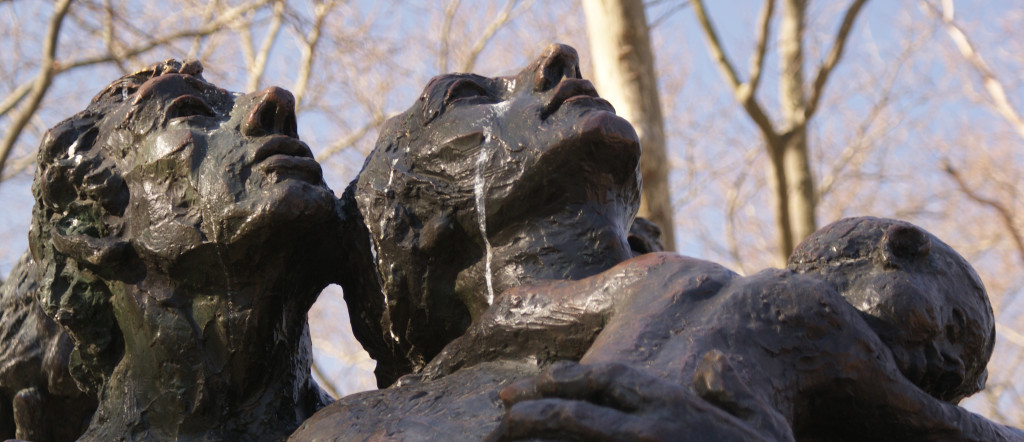Parashat Tzav/Shabbat Ha-Gadol
Leviticus 6:1 – 8:36
A special prophetic reading is chanted this Shabbat, for it is the Shabbat immediately before Passover. It is called “Shabbat Ha-Gadol – The Great Shabbat.” This haftarah(concluding prophetic reading) seeks to ready us for the redemption that we will celebrate at Passover, a redemption that serves as the basis for our commitment to complete the work of redeeming the world in the present and on into the future. Thus, we should not necessarily expect any connection between this haftarah and the Torah reading scheduled for this Shabbat, Tzav.
Nevertheless, I believe that we can find such a connection. Our Torah reading continues teaching about the sacrificial system. It is a system designed to make it possible for the ordinary person to give something tangible to God in order to draw closer to God. Indeed, one of the most common sacrifices – because it was the least expensive and could, therefore, be afforded by even the poorest Israelite – was called the minhah – the gift. The sacrifices were all about giving. And our special haftarah begins with God anticipating the sweetness of accepting “the minhah – the gift – of the people of Judah and Jerusalem.” (Mal. 3:4)
But the connection is not only through the occurrence of a common word. Our haftarah is deeply concerned with the theme of giving, of generosity. The prophet records God’s complaint that the people are stingy and skimp on giving their offerings. Besides holding back their tithe offerings, they do not pay their workers adequately nor do they help the stranger. In anger and desperation, God makes Israel an offer, an offer that, God hopes, we cannot refuse: “Put Me to the test,” says God. (Mal. 3:10) God makes a pledge that if the people will give their offerings as they should, God will make sure that they will prosper and not suffer the financial losses that they fear. God tries to “incentivize” our giving, so that, even if we are not generous at heart, we might be motivated to be generous out of selfish motives!
Our tradition remarks that we are generally forbidden from putting God to the test. (Deut. 6:16) That would be an act of vanity and hubris. Bu just this once God is happy to forego this Divine prerogative – for the sake of increasing human generosity! (BTTa`anit 9a)
Perhaps we can see a hint of this teaching in the special name of this Shabbat. Our reading tells of the installation of Aaron as the High Priest – the Kohen Ha-Gadol. This is Aaron, who is Moses’ older brother – ahikha ha-gadol. In both these capacities Aaron is “Ha-Gadol.” And our tradition identifies Aaron most especially with the quality of hesed – lovingkindness. In pushing us, as we prepare to celebrate our start as a nation, to pursue the qualities of generosity and giving, this Shabbat is the Shabbat of Aaron, the generous one, the Shabbat of “Ha-Gadol.”
Our present day society is challenged as in ancient days with the choice to either walk the path of selfishness and stinginess or to make extra efforts to implement policies suffused with the spirit of generosity. How we treat our work force and how we treat our strangers is the test of whether we are using our freedom in the way God intended. Fears that we cannot afford to be generous must be overcome. “Test Me on this!” says God.
Shabbat Shalom
Rabbi David Greenstein
![]()
Subscribe to Rabbi Greenstein’s weekly d’var Torah
image: “Immigrants” © Charles Dyer altered and used with permission via Creative Commons License
- Toby Stein: In Memoriam - Thu, Feb 8, 2024
- Faithfulness and Hope: Parashat Sh’lach - Thu, Jun 23, 2022
- Past Their Prime: Parashat B’ha`a lot’kha - Thu, Jun 16, 2022

